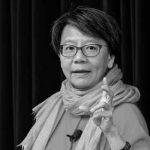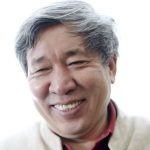The Future of the Humanities
The Humanities Research Center Launch Event, “The Future of the Humanities,” will take place from Friday September 14 to Saturday September 15, 2018 in the Academic Building of Duke Kunshan University. All are welcome to attend free of charge.
Please register online to attend.
All events take place in the DKU Auditorium unless otherwise noted.
Friday September 14
0900 Opening Ceremony
James Miller, Co-Director, Humanities Research Center
Feng Youmei, Chancellor, Duke Kunshan University
Carlos Rojas, Co-Director, Humanities Research Center
0930 Opening Keynote Panel with Daniel Lim and James Miller: Planetary Ethics and Artificial Intelligence
The Planetary Ethics and Artificial Intelligence Lab (PETAL) is a humanities laboratory based at the Humanities Research Center at Duke Kunshan University. The lab’s main research question is: what does it mean to be human in an age of artificial intelligence and planetary civilization? This research question arises out of the conviction that traditional humanistic research must be reconfigured to take proper account of the planetary context from which human life has emerged, and to respond to the challenge of artificial intelligence.
1030-1200 Faculty Research Panel: Interdisciplinary Studies in History and Literature
- Qian Zhu: History in Everday Life: How Everyday Life Matters to Write the History of 20th Century China
- Selina Lai-Henderson: “Riddle of the Universe:” Rethinking Race, Gender, and Transnationalism through W.E.B. Du Bois’s Encounters in China
- Ben Van Overmeire: Sex in the Monastery: Desire, Scandal, and the Union of Opposites in Two Zen Autobiographies
1100-1200 Student Seminar with Jeffrey Wasserstrom (by application only; AB3101).
1200 Lunch (Cafeteria)
1300 Humanities Majors and Career Forum (Water Pavilion). Discover options for humanities and social science majors at DKU. Meet authors Anna Greenspan and Juli Min, and DJ Brian Offenther to learn about careers in the worlds of arts and culture.
1430 Keynote Address: Jeffrey Wasserstrom, Shanghai and Globalization, 1868-2018. This talk will focus on two periods when, thanks largely to dramatic changes in technologies of transportation and communication, the world suddenly to have shrunk—the half-century that ended in 1918 and the half-century leading up to the present. It will explore the similarities and differences between those two periods of globalization, focusing in particular on the experiences and shifting places in the world of China as a country and Shanghai as a city.
1530 Refreshment Break
1600 Keynote Address: Yan Lianke, New Challenges of Writing in Contemporary Times. When real life becomes even more absurd and complex than fiction itself, what then becomes the role of an author? When real life loses its authenticity, how then should we understand the authenticity of fictional literature? When the individual comes to occupy a more and more diminutive position within the social collective, how can literature grasp individuals in their concreteness? How should authors respond to the growing proliferation on writing?
The address will be interpreted by Eileen C. Chow, Associate Professor of Asian and Middle Eastern Studies, Duke University.
1700 Roundtable Discussion: Carlos Rojas in conversation with Jeffrey Wasserstrom and Yan Lianke
1800 Buffet Dinner for speakers and student fellows (Executive Dining Room)
1930 An Evening of Music and Film. A performance of Western and Chinese music by DKU musicians, followed by a screening of Down: Indie Rock in the PRC (dir. Andrew Field and Jud Willmont, 2012).
Saturday September 15
0900–1030 Faculty Research Panel: Interdisciplinary Studies in Philosophy, Politics and Economics (AB2103)
Zach Fredman, Chair
- Emily Colleen McWilliams: What is Epistemic Injustice?
- Daniel J. Stephens: Role Theory and its Proper Place in Ethics
- Benjamin Schupmann: Political Extremism and Legal Revolution
- Mengqi Wang: Rigid Demand and the Policy Market: Economic Imagination and Practice in the “Socialist Market Economy”
0900–1030 Faculty Research Panel: Interdisciplinary Studies in Language and Communication (AB2107)
Don Snow, Chair
- Kristin E. Hiller: Language, Trans/Languaging, and the Internationalization of Higher Education
- Emmanuelle Chiocca: Not Upgraded Tourism: Perspective Transformation in Short-Term Study Abroad Experiences
- Tyler Carter: Habits of Persuasion: Insight Meditation as Rhetorical Device
- Dave Hare: D3D Uptake and Style
1030–1200 Faculty Research Panel: Interdisciplinary Studies in History, Culture and Society (AB2103)
James Miller, Chair
- Scott MacEachern: Archaeology, deep history and modern conflicts in Central Africa
- Titas Chakraborty: Controlling Labor Mobility as a State Building Process: The Ascendancy of the English East India Company State in Bengal 1700-1819
- Zach Fredman: “Jeep Girls”: Gender, Race, and Sexual Politics in Wartime China
- Nellie Chu: Reconfiguring Supply Chains: Trans-regional Infrastructure and Informal Manufacturing in Southern China
-
Kaley Clements: Low Hanging Fruit
1030–1130 Keynote speaker seminars (by application only) with Yan Lianke (AB3101), Ranjana Khanna (AB3103) and Ding Naifei (AB3107)
1200 Lunch (Cafeteria)
1400 Keynote Address: Ding Naifei, Love and Exploitation. In the first two decades of the 21stcentury, heterosexual and gay monogamy, licensed prostitution, and criminalized adultery meet in Taiwan. The talk explores fictional and historical representations of these topics. I consider how their triangulation is a conundrum in at least two languages.
1500 Break
1530 Keynote Address: Ranjana Khanna, On Speculation. Aristotle claimed that speculation originates when one is in proximity to a corpse. This talk will trace a feminist history of speculation in relation to the current Mediterranean refugee crisis and its media representation. I will consider how speculation is linked to what feminist philosopher Sarah Kofman called “living in the face of the intolerable.” The originator of psychoanalysis, Sigmund Freud, returned to Aristotle’s idea when he tried to make sense of the breakdown in civilization that came with the First World War, with bodies being repatriated. He began to formulate an idea of the death drive that formed the basis of ethical inquiry. The talk will explore some of these ideas, and take them to another level of analysis.
.1630 Roundtable Discussion: Carlos Rojas in conversation with Ding Naifei and Ranjana Khanna
1730 Closing Ceremony
Keynote Speakers
Ding Naifei 丁乃非

Ding Naifei teaches in the English Department at the National Central University, Taiwan and is a member of the Center for the Study of Sexualities. Her research investigates politics of feminism in literature and culture. She has written on the Jin Ping Mei, queer tactics in Taiwan fiction (with Liu Jen-Peng and Amie Parry), and concubinage in television drama.
Ranjana Khanna

Ranjana Khanna is a professor of English, Literature, and Gender, Sexuality and Feminist Studies, and is the Director of the Franklin Humanities Institute at Duke University. Her research focuses on post-colonial studies, feminist theory, psychoanalysis, literature and political philosophy.
Jeffrey Wasserstrom

Jeffrey Wasserstrom is Chancellor’s Professor of History at the University of California, Irvine, and is a leading historian of modern China. He is a frequent public commentator on US-China affairs.
Yan Lianke 阎连科

Yan Lianke is one of contemporary China’s foremost novelists. He has won the Lu Xun Literary Prize twice, the Franz Kafka Prize, and has been shortlisted for the Man Booker International Prize and the Grand Prix of Literary Associations.
Biographies of Career Forum Speakers
Anna Greenspan

Anna Greenspan is Assistant Professor of Global Contemporary Media at NYU Shanghai. She teaches courses in media theory, philosophy of technology and digital humanities in the program for Interactive Media Arts. Her current research interests include critical cartography, urban studies, wireless media, Chinese modernity and the philosophy of technology. Anna was the cofounder of the Shanghai Studies Society and helps run a digital humanities project on street food. Anna is also a founding member of the research hub Hacked Matter, which is dedicated to investigating the process of technological innovation in China. She is currently working on a project on wireless media and New Confucian thought. Anna’s latest book Shanghai Future: Modernity Remadewas published by Oxford University Press in 2014. See http://www.annagreenspan.com
Juli Min

Juli Min is a writer and editor based in Shanghai. She writes about places, culture, and education and leads creative writing workshops for students and adults. IShe is the Editor in Chief of the literary magazine The Shanghai Literary Review, and she writes a column about expat life for the mainland newspaper The Global Times. She is a Lecturer of writing at the Hong Kong University of Science & Technology. See http://julimin.work
Brian Offenther

Brian Offenther earned a bachelor’s degree in philosophy from the University of Florida in 2007. His focus was ancient Greek philosophy. Previously, he had been the president of his high school philosophy club. Subsequently, his philosophy study has informed every part of his life—including his career as a DJ/event producer.
Abstracts
Tyler Carter
Habits of Persuasion: Insight Meditation as Rhetorical Device
The study of rhetoric is the study of how language, broadly defined, can be used to effect change in the world. Post-modern, and more recently, post-human and New Materialist theory, has led to reconsiderations of classical rhetoric (e.g. Aristotle and the sophists) as well as new frontiers in rhetorical theory. One necessary component of this reconsideration has been the emergence of “global rhetorics,” that is, the realization that the study of “rhetoric” need not only involve Western ideas and practices. In this presentation I will discuss how the practice of modern Buddhist “insight” mediation, a kind of meditation that is closely related to the more popularly known practice of “mindfulness,” can be understood as a rhetorical device; that is, as a device that affects how one understands and experiences the world. In the end, I argue that modern Buddhist meditation practices can lend insight into how our moment-to-moment attention structures play a role in knowledge construction, and further, offer a novel means to discuss non-discursive rhetorical appeals
Titas Chakraborty
Controlling Labor Mobility as a State Building Process: The Ascendancy of the English East India Company State in Bengal 1700-1819
The Bengal Regulation VII of 1819 made breach of contract, especially through desertion, a criminal offence for all groups of workers in the provinces of Bengal, Bihar and Orissa. In South Asian historiography this legislation is seen as the first major labor legislation of the early colonial state under the English East India Company (EIC), through which the state instituted a master-servant relationship based on contract, similar to the master-servant laws in England. But, this discussion elides the EIC’s role as an employer in the region for over a century and how the wisdom they gathered as an employer, especially in the period before colonial state formation, had informed the 1819 regulation. This paper, drawing from the experiences of two groups of workers who were one of the first formal contractual workers in colonial Bengal–indigenous boatmen and European sailors and soldiers—show the extremely conflictual worker-company relation over the eighteenth century which finally culminated in the 1819 regulation. The primary form of worker-company conflict was uncontrolled mobility or desertion of workers. In the pre-colonial period, workers managed to keep high wage levels through successful use of the strategy of flight. The early colonial state countered this strategy through the institution of a centralized police, which became the state’s primary recruiter. Through a series of legislation the police force was empowered to introduce and maintain contracts, use coercion for recruitment, thereby effectively curbing desertion to maintain a steady supply of boatmen, European sailors and soldiers for low wages. Finally, the paper posits this history of colonial state’s increasing control over boatmen and European sailors and soldiers’ mobility in the early nineteenth century Bengal as part of the global trend of unprecedented levels of forced/unfree labor in human history in the early 1800s.
Emmanuelle Chiocca
Perspective Transformation in Short-Term Study Abroad Experiences
International education has been evolving in the past decade: language-focused and full immersion programs are declining, and short-term discipline-focused programs are increasing. With this growth comes the need to develop a concentrated and impactful curriculum for these short sojourns and to provide supportive environments for deep learning abroad that is more than upgraded tourism but rather focused on educational outcomes. This qualitative case study investigates the experiences of five study abroad participants in Jerusalem and the changes they perceive themselves to have undergone during their sojourn, in the hopes of providing insights for international curriculum development. Findings highlight the connections between experiential learning, intercultural competence development, and perspective transformation. They encourage international educators to provide instructional frames that encourage students to engage with the host culture in critical ways via experiential pedagogy to increase their critical cultural awareness.
Nellie Chu
Reconfiguring Supply Chains: Trans-regional Infrastructure and Informal Manufacturing in Southern China
In China, various infrastructure projects are restructuring global supply chains that connect factories in the interior provinces to assembly and distribution sites along the coastal areas. The cross-regional movement of labour and capital highlights the reconfiguration of the country’s industrial base away from the coastal regions to the interior provinces. My presentation briefly shows how these linkages have been accompanied by an expansion of informal entrepreneurship and manufacturing in smaller cities across the interior provinces. Many of these business and industrial practices are driven by early generations of migrant workers who have arrived in Shenzhen, Dongguan, and Guangzhou in the early 1980s and who have relocated back to their native places in smaller cities or in the countryside. This development, in turn, has intensified the conditions of temporary labour among wage workers, as well as the extractive practices of landowners and government officials in the interior regions through their collection of fees and other forms of rent-seeking. Thus, the place-based and informal extractive practices, as I show, remain part and parcel of migrants’ experiences of small-scale entrepreneurship as they reconfigure garment supply chains transregionally across China.
Kaley Clements
Low Hanging Fruit
Low Hanging Fruitfollows avocados as a commodity in Michoacán, the only state in México allowed to export the product into the USA. The project maps out a history of the fruit, follows how an 80-year US embargo on the product was eventually lifted to only include avocados from Michoacán, and flows into how the commodity is ran today. Avocados are used as a symbol to represent a greater story about how markets are controlled in today’s globalizing economy. This is done by following some of the logistics as broken into three main categories: governmentality, ecological devastation, and environmental racism.
Zach Fredman
“Jeep Girls”: Gender, Race, and Sexual Politics in Wartime China
By early 1945, Chinese civilians from across the social spectrum had come to resent the U.S. military presence in China, but only one issue catalyzed violent backlash: sexual relations between American servicemen and Chinese women. Two interrelated, gendered narratives about sexual relations emerged that spring. In February, Chinese newspapers began publishing articles, letters, and cartoons about “Jeep girls,” an epithet coined to describe the Chinese women who fraternized with American servicemen. Jeep girls, this narrative alleged, rode alongside GIs in the U.S. Army’s ubiquitous Jeep 4x4s while looking down upon compatriots who bled and labored for the nation. Rather than serve their country, Jeep Girls offered American soldiers “companionship” in exchange for luxury goods or money. Jeeps also featured prominently in the second narrative, which first appeared in police reports and street gossip during late 1944, before snowballing into a generalized panic that swept through southwest China over the next few months. According to this narrative, American soldiers in Jeeps were snatching women off the streets and raping them. This bifurcation of the Chinese women who had sexual relations with GIs into prostitutes or rape victims made gender the site of intense, racialized struggle in wartime Sino-American relations.
Dave Hare
D3D Uptake and Style
Digital stereoscopy (D3D) stands as one of contemporary popular cinema’s most significant developments. Now almost ten years since James Cameron’s Avatar was released (2009), D3D’s impact on popular cinema technique and style continues to be explored in diverse ways. Cameron’s (2008) notion of a ‘turned up or down’ D3D technique helps explain some of the basic principles, as does his collaborator’s, Vince Pace (2012), acknowledgment that D3D represents an expansion of conventional cinema technique and style. Taking these practitioner views as a basis for analysis alongside other theoretical explanations of contemporary conventional popular cinema visual technique and style by Bordwell (2006), Stork (2011) and Isaacs (2016), this paper provides original analysis of 65 D3D films. It makes the case for a popular D3D style created by filmmakers merging D3D with conventional film techniques and approaches, often contradicting conventional ideas to do with cutting rates and pacing. The analysis explores the ways in which filmmakers have so far taken up D3D in relation to conventional cinema, and the key visual techniques that have resulted from this up take that define what can be called a D3D visual style.
Kristen E. Hiller
Language, Trans/Languaging, and the Internationalization of Higher Education
In universities, as elsewhere, languages are often viewed as separate entities to be used in distinct monolingual domains. Where English is the medium of instruction, it is frequently expected to be the only language used in the classroom, with the exception of “foreign language” classes or, less frequently, language-across-the-curriculum programs. But even when (what are popularly considered to be discrete) languages coexist on campus, they are more often than not officially kept separate. In this talk, I describe a different view of language held by a growing number of applied linguists—one that more closely reflects natural language-use practices. This view, called translanguaging or translingual practice, recognizes that (1) individual languages are social/political/historical constructs, but (2) language is a social practice; and that (3) communication transcends both individual languages and words and involves diverse semiotic resources. I then present results from a study involving international undergraduates at a U.S. university, in which multilingual participants’ descriptions of ways they leveraged their linguistic resources revealed an institutional monolingual bias for the separation of languages resulting in an unequal positioning of named languages.
Selina Lai-Henderson
“Riddle of the Universe:” Rethinking Race, Gender, and Transnationalism through W.E.B. Du Bois’s Encounters in China
Over the course of his lifetime, the important American intellectual W.E.B. Du Bois has long been recognized as the founder of the Civil Rights Movement and father of the black race in the United States, but his influence and legacy extended far beyond those national borders. In forging Pan-African and Pan-Asian alliances throughout his career, he consistently asserted the importance of “full manhood” in challenging global white hegemony. What did manhood mean to Du Bois in relation to the question of race? Did his view of manhood change as he moved across different geo-political, cultural, and historical spaces? Through examining his sojourns to China in 1936 amidst rising Sino-Japanese tension and in 1959 at the height of the Great Chinese Famine, the talk interrogates the ways in which Du Bois sought transracial solidarity with the Chinese as he positioned his black male identity as an agent of change in international politics.
Scott MacEachern
Archaeology, Deep History and Modern Conflicts in Central Africa
The prehistory of the Lake Chad Basin in Central Africa is not well-known beyond the continent, but archeological research has uncovered a rich history of cultural development through the last 8000 years, accompanied by dramatic climate and environmental changes. This history includes the appearance of substantial walled settlements by 500 BC, and the gradual development of sociopolitical hierarchies over succeeding centuries. The culmination of these processes involved the appearance of expansionistic slave-raiding states in the late first millennium AD, which again transformed the human landscape of the region. We can detect significant historical continuities between the activities of those precolonial slave-raiders and the terrorist organization Boko Haram, which operates in this area today. Boko Haram is certainly a modern phenomenon, but it also perpetuates systems of border violence and wealth creation that have deep roots in the lands south of Lake Chad.
Emily Colleen McWilliams
What is Epistemic Injustice?
Ethicist and political philosophers have long theorized about justice and injustice. Recently, epistemologists have also become intensely interested in these debates. Epistemology is the sub-field of philosophy that concerns itself with how human beings ought to form and revise their beliefs, and to seek knowledge and understanding. Some epistemologists have argued that there is a specifically epistemic dimension of injustice. What, then, is epistemic injustice? That is, how can human beings be subject to an injustice specifically in their capacity as epistemic subjects, who form beliefs, and seek knowledge and understanding? In this presentation, I will outline some of the different types of epistemic injustice that philosophers have theorized about, and will consider whether there is a unified principle that unites them.
Benjamin Schupmann
Political Extremism and Legal Revolution
Popular support for extremist parties is on the rise in liberal democracies today. These parties aim to alter the basic structure of constitutional democracies. In some democratic states, such as Hungary, Turkey, and Poland, extremists controlling the government have altered fundamental commitments of liberal democracy – including minority rights and protections, the separation of powers, and academic freedoms. The difficulty facing liberal democrats is that extremists have been elected to power democratically and they make these legal and constitutional changes legally. Some describe this phenomenon as “democratic suicide”: by obtaining a majority or super-majority in parliament, extremists can revolutionize liberal democracy legally, seemingly according to the rule of the game.
Daniel J. Stephens
Role Theory and its Proper Place in Ethics
One distinctive feature of Confucian ethics is the degree to which it focuses on the importance of social roles. Confucianism, especially in Xunzi’s development of it, is committed to the view that we ought to maintain, and act in accordance with, a specific system of social roles. Taking this feature of Confucian ethics seriously can lead us to ask the general question of what place, if any, such a system of social roles ought to have within an ethical view. In this talk, I will explain a variety of ways that one might answer this question. The answers range from a minimalist view, on which the most adequate ethical view is one that does not countenance social roles at all, to a maximalist view on which there is only one correct system of social roles and the most adequate ethical theory is the one that spells out that system. I will argue that neither of these more extreme answers is correct. I will then examine in more detail the middle ground that this leaves, arguing that any adequate moral view should incorporate what we can call a “role theory”, i.e., an account of the system or systems of social roles that will best enable people to fulfill their normative ends. I will end by suggesting, however, that there remain several viable avenues for developing an ethical view that incorporates such an account.
Ben Van Overmeire
Sex in the Monastery: Desire, Scandal, and the Union of Opposites in Two Zen Autobiographies
From the 1980s onwards, Zen communities in the West have been deeply shaken by the discovery of the sexual relationships important teachers have maintained with their students. In this talk, I will look at some recent autobiographies by students of Zen masters involved in these scandals to investigate how these students make sense of their teacher’s behavior. As I show, an important mechanism emerging from these texts is the (Freudian) idea of projection and the (Buddhist) notion of non-duality. If one is offended by the behavior of the master, this has as much to do with one’s personal unresolved sexual issues as with the ethics of the master. Once the master is seen as a full human, his shadow side becomes more understandable and even something from which one can glean deep insight. To unequivocally stamp such behavior as “wrong,” these autobiographies indicate, is a demonstration of exactly the type of limited views Zen training aims at dispelling. Yet at the same time, by speaking about such behavior, these books also bring into the open what many other Zen memoirs have stayed silent about, creating a “shadow archive” of modern Zen, a narrative to balance any overly positive or naive view of this tradition.
Mengqi Wang
Rigid Demand and the Policy Market: Economic Imagination and Practice in the “Socialist Market Economy”
Two decades after its housing marketization reform, China now has the most unaffordable homes in the world. Meanwhile, it also has the highest homeownership rate with nine out of ten urban families own their homes (two out of ten own more than one property). Why do Chinese people buy homes at high costs? What does housing’s socioeconomic significance tell us about China’s “socialist market economy?” This talk focuses on the folk concept “rigid demand” that Chinese homebuyers use to justify their home-buying decisions. In Chinese, rigid demand means people’s absolute need of homes. In this talk, I show how rigid demand as a conceptual device serves different purposes for different actors in their imagination of and practice in the housing market. In particular, rigid demand enables the government to frame its regulation of the housing market as both technical and legitimate. In the name of protecting people with a solid need of homes, the government reaffirms its ideological claim of the socialist nature of its market economy. For urban residents, rigid demand legitimizes their entitlement to homeownership and fortifies the belief in the stability of the housing market. I will also show how people agentively apply the theory of rigid demand in their daily real estate practices and in housing protests.
Qian Zhu
History in Everyday Life: How Everyday Life Matters to Write the History of 20th Century China
My book, Producing Modern Life: Everyday Leftism, Democracy, and Nation in Republican China, 1919-1945, examines the ways in which “everyday life” was conceptualized by prominent Chinese non-Marxist leftwing intellectuals and culture workers in their political activities in China and in Southeast Asia and their quest to define a democratic present and future. It covers the period from the 1919 May Fourth Movement—conventionally understood to inaugurate China’s enlightenment movement—to the end of the Asia-Pacific War in 1945. Drawing upon archival collections of journals and magazines in China and the United States, I investigate how Chinese leftists, who were not affiliated with the Communist Party but who espoused democratic sympathies, thought about everyday life in ways that distinctly differed from the ideologies of the party politics that dominated China’s interwar political scene. The major revision of my book from my dissertation is to extend the research period from 1936 to 1945 after the fall of Nanjing and the breakout of the total war between China and Japan. While their activities were carried out in the Shanghai-Nanjing areas before 1937, everyday leftists exiled to Hong Kong and the Southeast Asian countries, such as Singapore, Indonesia, and Malaysia, to continue their political activism. With the escalating of the Asia-Pacific War, their activity gradually shifted underground and integrated with the anti-fascist movements among the Southeast Asian Chinese communities. Although some of their activities in Southeast Asia have been studied in P. R. China, there is no English-language research on the anti-fascist alliance of Chinese activists and Southeast Asian Chinese communities.